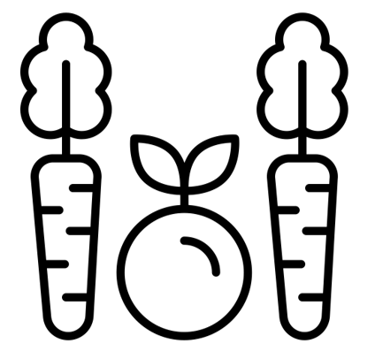Intuitive eating: what is it?


Intuitive eating is an approach developed by two American dieticians in the mid-90s
IIt's not a weight-loss diet, even if, by healing the conflicting relationship we sometimes have with food - as a result of the injunctions we receive about it and about physical appearance - it sometimes leads to weight loss.
This approach consists of basing our diet on the signals (hunger, satiety, cravings, etc.) sent by our body, without judgment and with kindness.
It combines other aspects of a healthy lifestyle with an overall respect for the body. I recommend it to all those who have become prisoners of diets or have become obsessed with the perfect diet, sometimes to the point of developing eating disorders. This approach often goes hand in hand with reaching your natural body weight, which varies from person to person according to metabolism and build. It’s the weight at which we feel comfortable and our body functions optimally.
Intuitive eating can help avoid falling into orthorexia, which is an eating disorder defined as an obsession with healthy eating. It leads the person concerned to disconnect from their sensations of hunger, satiety, satiation, and pleasure, and to eat only according to considerations of whether or not what they are eating is healthy. This doesn't make sense, because, apart from processed foods, there is no such thing as healthy foods on the one hand and unhealthy foods on the other. It's all about overall balance and diversity. For example, there's no point in cutting out white bread if you love it, if you eat a varied, balanced diet. There's also no need to count calories, weigh foods and make complex calculations. Stick to the broad outlines, the main principles and, above all, common sense. What matters is an overall balanced diet.
It's essential to find peace in our relationship with food. To achieve this, I have three pieces of advice:
The first is to pay attention to what leads you to eat. Is it to satisfy your hunger, or is it for something else? To comfort yourself? To break boredom? To follow a prescription (like eating breakfast when, if it were up to you, you'd do without)? Whenever it's not a hunger to be satisfied, it's useful to be aware of it and to find another way of meeting your true need.
The second tip is to eat as mindfully as possible by doing nothing else than observing all the sensations that each mouthful brings you: the consistency, the taste, the blend of tastes, the possible crunchiness or melting, the possible sounds, all the sensations. This is what we saw in the paragraph on intuitive eating. Don't forget that your body knows, that it's perfectly capable of telling you, if you listen to it, what's good or not so good for you, and whether you're full or still hungry.
The third tip is to follow your cravings. Craving sugar? Well, go ahead, have a cookie, or some other sweet that gives you pleasure. You know and can feel that one sweet has better nutritional value than another, so you'll act accordingly. Do the test: if you consciously eat a chocolate bar that has no nutritional value whatsoever, you'll feel it, and your craving won't be satisfied.
To find out more, also read these articles:
On the issues of industrial food: https://isabellemaesnutrition.com/en/processed-foods
On how to broaden the range of foods that have a place in a healthy diet: https://isabellemaesnutrition.com/en/forgotten-foods
Young lady picture by Pablo Merchán Montes
